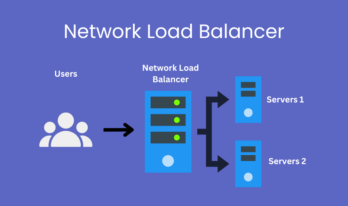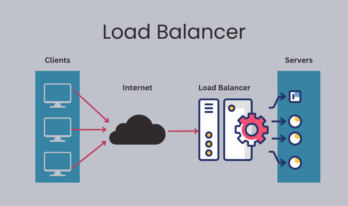Industry 4.0 is the new phase of the Industrial Revolution that focuses on automation, interconnectivity, machine learning, and real-time data. It can also be referred to as IIoT or Smart Manufacturing.
Moreover, industrial automation plays a key role in the evolution of Industry 4.0. During the pandemic social distancing is an important safety measure. Hence, businesses that adopted automation in the industry 4.0 model have benefitted from it.
That is to say, there are multiple benefits of automation in Industry 4.0. Therefore, in this article, we will learn about the benefits along with the revolution of Industry 4.0, various technologies, importance, and different trends.
Firstly, let us begin by understanding the term Industry 4.0 automation revolution.
Understanding Industry 4.0 Automation and its Importance
What is the Industry 4.0 Automation Revolution?
Industry 4.0 signifies the fourth industrial revolution. Moreover, it is the digital transformation of manufacturing, production, logistics, and other related industries.
Most importantly, Industry 4.0 brings in a revolution in manufacturing by using technologies for a more agile and flexible production. Above all, incorporating automation and connectivity in the industrial sector impacts the business environment. It also plays a pivotal role in access to information by transforming the data collected from various activities.
Above all, automation in Industry 4.0 revolutionizes the decision-making process, monitoring assets and processes, etc. Hence, the fourth industrial revolution brings in intelligence in the networking of machines and processes. As a result, the suite of information and communication technology paves way for newer opportunities in the industry.
Industry 4.0 Automation Revolution is certainly the current trend to digitally transform manufacturing processes. It includes cyber-physical systems that automate and exchange data for remote monitoring efficiency during production.
Professor Klaus Schwab states in his book, The Fourth Industrial Revolution, that Industry 4.0 encompasses, “new technologies that combine the physical, digital and biological worlds, impacting all disciplines, economies, and industries. These technologies have great potential to continue to connect billions of more people to the web and drastically improve the efficiency of business and organizations.”
Moreover, the Industry 4.0 Automation Revolution depends on the following principles:
- Firstly, the interoperability of elements with other elements, people, and third-party systems
- Secondly, it depends on the decentralization of decision-making processes.
- Further, the ability to provide real-time analytics.
- Service Orientation also influences the Industry 4.0 Automation Revolution as it comprehends customer behavior towards new business models.
- Moreover, virtualization fabricates and collects data to imitate industrial processes.
- Most importantly, modularity and scalability determine the demand and recommend the technical resources and requirements.
Industry 4.0 Technologies for Automation
Earlier, manual intervention was a requirement to run factories. However, the fourth industrial revolution makes smart factories a reality. That is to say, the use of digital technologies in Industry 4.0 describes an evolving trend towards automation.
Therefore, Industry 4.0 achieves automation by adopting different technologies for interconnectivity and communication. Hence, here are the Technologies used in Industry 4.0:
-
Industrial Internet of Things (IIoT)
IIoT refers to the interconnectivity and collaboration of data, machines, and humans in an industrial environment. Moreover, IoT includes sensors, machines, and data that connect effortlessly to then apply it in industrial processes. Hence, IIoT helps in optimizing efficiency by connecting various aspects and collecting data for decision-making.
-
Artificial Intelligence
AI and its branches like machine learning are critical enabling automation in Industry 4.0. Moreover, the entire premise is to automate manual processes using machines. As a result, AI is the primary solution to reach the ultimate goal.
AI can also comprehend data generated from connected factories. Hence, it optimizes machinery, rearranges workflows, and detects enhancements to achieve efficiency in processes. -
Big Data and Analytics
During manufacturing operations, a huge amount of data is generated. As a result, the data can possess information to help businesses.
Therefore, AI and machine learning can help collect and process the data into actionable information. Hence, monitoring the data enables businesses to improve manufacturing operations and efficiencies. -
Cloud and Cybersecurity
Operations and tasks often generate massive amounts of data. Hence, cloud and cybersecurity technologies help store and secure heavy loads of data. It also helps manufacturers save massive amounts of space by providing cloud storage opportunities.
Moreover, cloud storage and computing help connect and digitize operations. Simultaneously, storing real-time data from IoTs requires robust cybersecurity arrangements. As a result, cloud and cybersecurity protect data and enable businesses to access and utilize it for further analysis. -
Simulations
Simulation is the process of imitating a real-life operation or system. Industry 4.0 during the automation process benefits by forecasting outcomes using simulation.
Prior to the digitization of manufacturing operations, making critical changes in a product line or process was difficult. At times, optimizing the speed and accuracy was a game of guesswork.
Although, now enhanced simulation solutions are powered by AI and IoT data. As a result, making decisions regarding changes in the process has become more accurate, saving time and money.
Manufacturing Automation Trends in Industry 4.0
Machines in factories are often augmented using wireless connectivity and sensors. Hence, Industry 4.0 leads to automation in the manufacturing system. As a result, it leads to monitoring and visualizing the complete production process to make more autonomous decisions.
Therefore, there are various trends adopted over the years by businesses to remain relevant and updated.
360° View Around the Corners
One of the latest trends in manufacturing automation allows companies to have a wide view of their process. Moreover, the technologies and tools allow businesses to create and test situations virtually. Hence, they gain deeper insights into the process without any physical impact.
Therefore, advancements like simulation, augmented reality, virtual reality, and now even mixed Reality assist businesses in reaching their goals. Hence, providing a wider view to improve, change and adopt different manufacturing processes.
3D Printing
3D Printing plays a pivotal role in the manufacturing industry. Further, it seamlessly creates tangible replicas of products using a single machine.
Manufacturing automation requires technologies like 3D printing, It helps comprehend the complications that may occur in the design. As a result, it reduces the waste of resources.
It also helps replace spare parts for certain products and saves time and cost by replacing them.
Robot Process Automation
Manufacturing Automation already depends on machines and AI to run processes. Although, RPA guarantees to deliver more variety of tasks and complement the inputs by humans.
Moreover, RPA also boosts efficiency and productivity in the automation process. Therefore, it helps businesses procure better insights and utilize human resources effectively.
Digital Twin
Digital Twin refers to the virtual representation of any physical object, process, or service. Above all, it is a computer program that uses real-time data to create and predict simulations to determine the performance of a product or process.
It also enables engineers to run simulations and allows machine learning technologies to predict breakdowns. As a result, Digital twins are an emerging technology that has increasingly become an important tool in manufacturing automation.
Enterprise Resource Planning (ERP)
The manufacturing industry has been using ERP for decades. Consequently, the rise of cloud-based and SaaS technologies have increased the utilization of ERP.
Moreover, ERP helps deploy solutions in manufacturing automation. As a result, businesses rely on it to run operations under a comprehensive system.
Top Reasons Industry 4.0 Automation is Important
- Firstly, it eases challenges for the manufacturers by providing more flexibility and responsiveness.
- Moreover, it helps businesses comprehend data to use in production, delivery, and other important aspects of the organization.
- It also prepares businesses for any changes in demand, process, or environment.
- Further, it helps businesses pave the way for more innovation. As a result, it helps improve the economy and standards of industries owing to newer innovations.
- As a result, the consumer’s interest will be the center of the process. Hence, leading manufacturers to deliver the best in-line products and services for their target audiences.
- Automation and digital transformation also help Industry 4.0 influence businesses in developing and designing new processes.
- Above all, businesses also get a competitive advantage when they adopt the concept.
- Most importantly, it helps improve the efficiency across operations to deliver the best-in-class products and services.
Conclusion:
In conclusion, Industry 4.0 has brought about a revolution in the manufacturing and automation industry. Furthermore, it builds sustainable and scalable processes in a manufacturing environment. As a result, it is predicted to reach $165.5 billion by 2026 with a CAGR of 20.6%.
You May Also Like to Read:
Types and Examples of Industrial Automation Tools for Businesses
The Evolution and Future Scope of Industrial Automation




